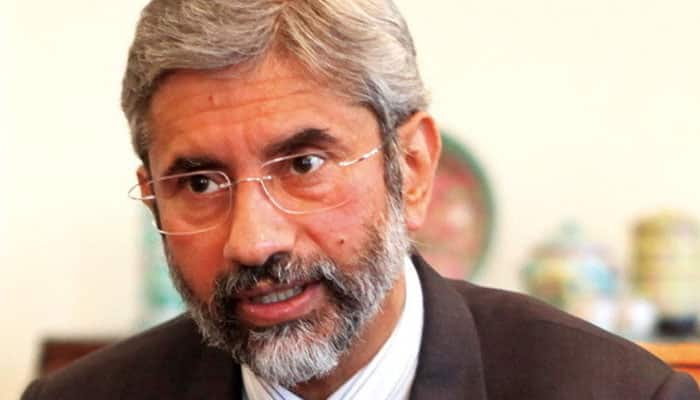New Delhi: The incoming Trump administration in the United States "will have different priorities", there may be a "degree of decoupling" with Europe and fluidity at the great-power level may translate into "uncertainty at the regional level" - which would make it imperative for India "to engage with a multiplicity of actors in a multi-polar world", Foreign Secretary S. Jaishankar said.
"There will be change in terms of engagement of the US with the world," Jaishankar said in his keynote speech at a seminar on "India and the Great Powers: Continuity and Change" at the Institute of Defence Studies and Analyses (IDSA) here on Monday.
"What can be safely predicted is that the Trump administration will have different priorities," he stated.
Jaishankar, who was in Washington last week to meet US administration officials, said that with Britain's exit from the European Union and Trump's election in the US, "we need to see if there will be some degree of decoupling, whether there is lesser Western unity".
He also posed the question as to whether the upcoming Trump administration would "bilateralise" most of the US' ties with other parts of the world.
The Foreign Secretary said that "fluidity at the great power level was translating into uncertainty at regional level".
He was of the view that how India positioned itself optimally in its engagement with the US, Europe, China and Russia would be a challenge.
"In an evolving global order, India needs to engage with a multiplicity of actors in a multi-polar world," Jaishankar said.
Stating that India was not a beneficiary of the post-1945 world order, he said that forums like BRICS (Brazil, Russia, India, South Africa) offered New Delhi opportunities to engage with powers like Moscow and Beijing.
As for the involvement of "great powers" in India-Pakistan relations, he said that "the lesson we have learnt is that it has not been helpful".
Regarding Pakistan's posturing of using tactical nuclear weapons, he said: "We don't speak of tactical nuclear weapons. Somebody else does that."
Former Foreign Secretary and National Security Advisor Shivshankar Menon, in a TV interview last week, said that the tactical nuclear weapons developed by Pakistan would be devolved to lower ranking officers at the battlefield level, who will be "younger officers in an army that is increasingly religiously motivated and less and less professional and that has consistently produced rogue officers and staged coups against its own leaders".
This, according to him, means that the likelihood of such tactical nuclear weapons being used against India has increased. Tactical nuclear weapons are nuclear weapons which are designed to be used on a battlefield in military situations.
In his speech, Jaishankar also talked about regional unity and said that if there was any country that has more interest in the South Asian Association for Regional Cooperation (Saarc), it was India.
Following the cross-border terror attack on an army camp at Uri in Jammu and Kashmir in September that claimed the lives of 19 Indian soldiers, India decided not to participate in the Saarc summit that was scheduled to be held in Islamabad earlier this month. Afghanistan, Bangladesh and Bhutan too followed suit resulting in the meet being called off.
Jaishankar said that if anything bad happened in South Asia, it impacted India the most as it was the biggest country in the region.
Without mentioning Pakistan, he said that the approach of not allowing regional trade and connectivity has to change.
On China's One-Belt-One-Road initiative, he said that India was open to be a part of any regional connectivity issue if it was consultative in nature.
He said for India to become a great power, it needed to develop a broader identity.
















